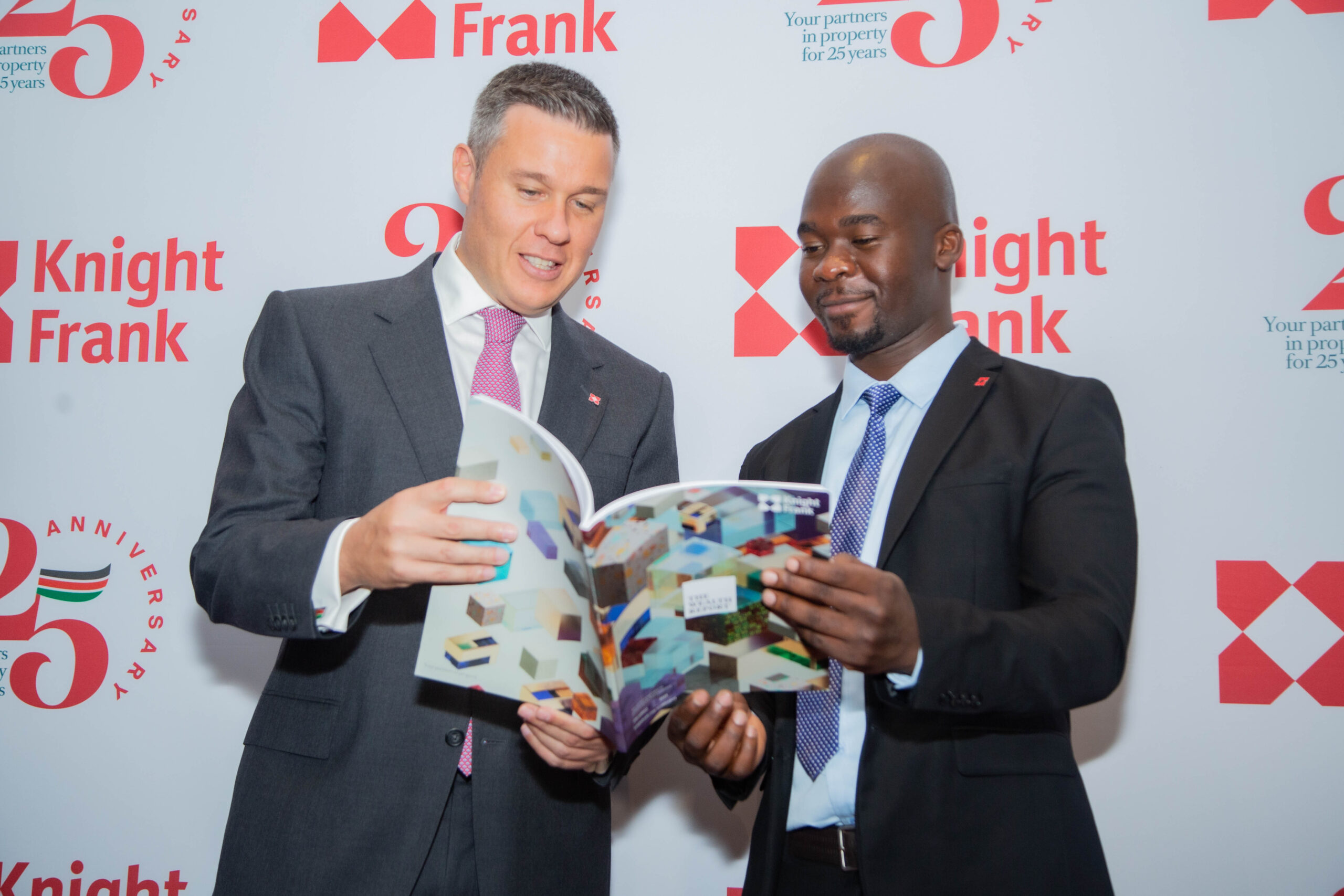
- Knight Frank: Prime office occupancy levels in Africa jump 25% in 12-months
Prime office rents have largely remained stable across Africa, according to global property consultant Knight Frank’s Africa Office Market Dashboard H1 2024.
This stability is particularly evident in cities like Lagos and Cairo, where prime rents have held steady at US$ 56 psm and US$ 35 psm, respectively.

Mark Dunford, CEO-Knight Frank Kenya, explained, “Despite the historical oversupply in markets such as Nigeria, Kenya, and Tanzania the office occupancy rate at thiod last year, reflecting a 25% rise”.
“The top end of the market has surged to an average of 75%, a significant increase from the 60% recorded during the same pers growth underscores both, the return to traditional office settings post-pandemnic, as well the focus by occupiers on best-in-class space, mirroring global trends, not least because of the links between talent attraction and retention”.
While the demand for high-quality office spaces continues to rise, the supply of true Grade A offices remains constrained across many markets across the continent.
This scarcity is contrasted against an oversupply of more secondary offices, creating a tenant-favourable market.
Notably, prime rents in cities like Nairobi have stabilised at US$ 13 psm, with new developments like the US$ 50 million Eneo project adding approximately 25,800 sqm of office space.
Despite these additions, the market has shown resilience, with occupancy rates in Nairobi increasing slightly to 77.2% in June 2024, up from 76.5% at the end of 2023.P

ESG-focus
Knight Frank also points out the increasing emphasis on sustainability and green buildings as an emerging trend across the continent. Occupiers in key markets, such as South Africa, Kenya, Egypt, and Morocco, are prioritising offices that meet ESG criteria.
For instance, the Green Building Council of South Africa (GBCSA) has reported a 15% year-on-year growth in green-certified buildings, now covering approximately 11.6 million sqm of space.
This trend aligns with global sustainability efforts as companies increasingly seek environmentally friendly workspaces to reduce their carbon footprint.
Indeed, Knight Frank says, many international businesses have a global mandate to occupy nothing less than ESG-rated space, with many willing to pay a premium for the privilege of doing so.
Oversupply of secondary offices
Despite the overall rental stability, several markets are grappling with oversupply challenges, particularly in lower-grade offices. In Blantyre, Malawi, for instance, office vacancy levels have risen to 25%, driven by relocations of government offices to Lilongwe. Similarly, Lagos faces an oversupply of Grade A offices, with prime rents stabilising at US$ 56 psm per month. However, in local currency terms, rents have surged by 150-200% due to the Naira’s depreciation against the US dollar, prompting tenants to negotiate leases in local currency or seek rent reductions.
Tim Ware, Managing Director-Knight Frank Zambia, said, “In Zambia, Developers and landlords are focusing on leasing the existing oversupply of space by offering more flexible leasing terms and smaller unit sizes, aligning with current market demands.This strategy appears effective, as evidenced by increased occupancy rates averaging above 65%.
For instance, the prime 9,000 sqm ZEP RE Office Park on Alick Nkhata Road in Lusaka has reached 69% occupancy, with an additional 18% under offer following a strong uptake in the first half of the year.”
Knight Frank says cost considerations are pivotal in Africa’s office market evolution, especially in Uganda and Tanzania. Both markets are experiencing increased demand for smaller offices, ranging from 50 to 150 sqm, driven by cost-sensitive startups and SMEs.
In Uganda, Grade A offices have an average occupancy rate of approximately 90%, whereas, in Tanzania, prime offices maintain an occupancy rate averaging 80%, exceeding the continental average of 75%.








